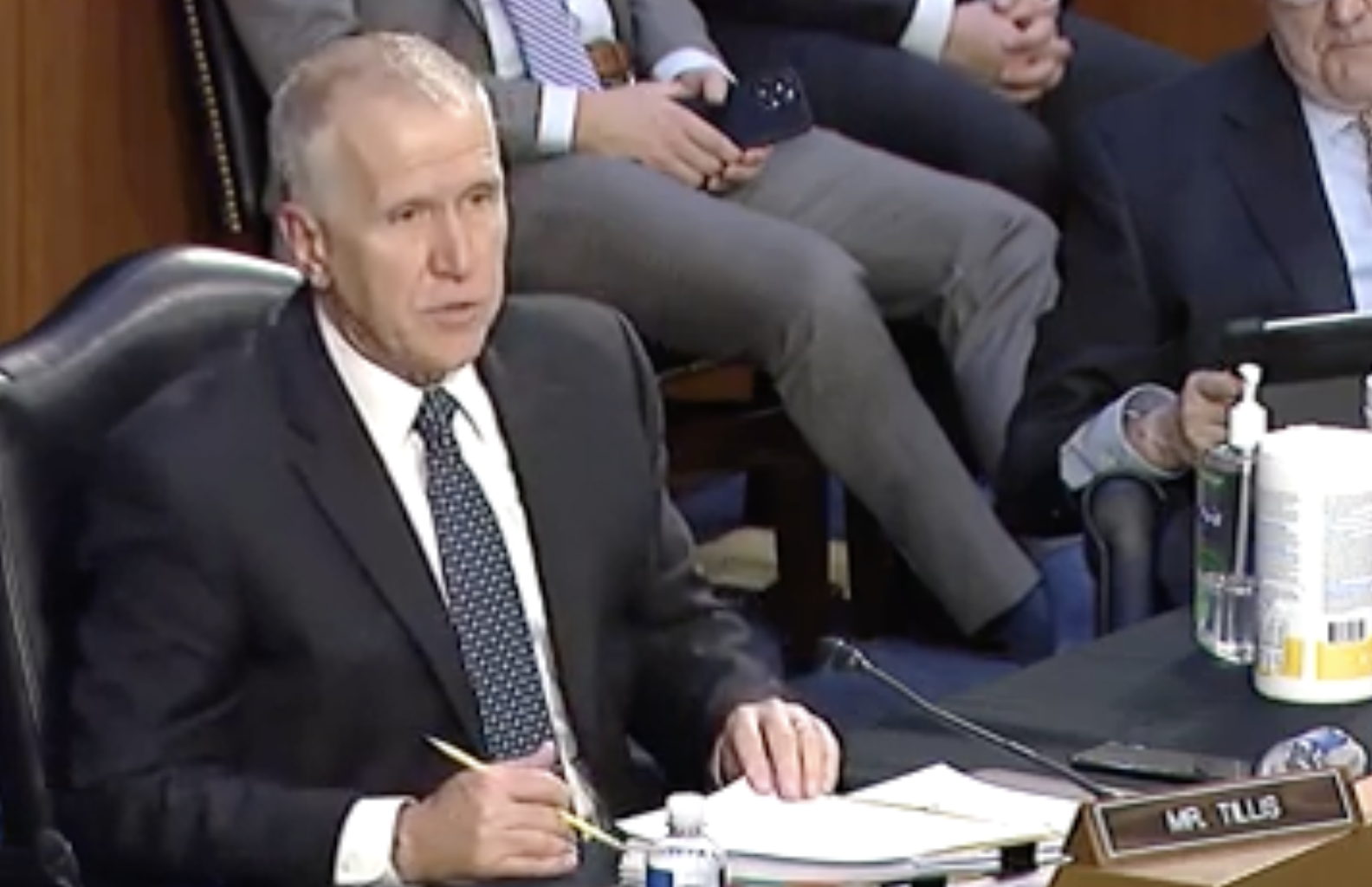On Tuesday morning, day two gets underway of the U.S. Senate Judiciary Committee’s confirmation hearings of Judge Ketanji Brown Jackson, 51, to the U.S. Supreme Court. If confirmed, she would replace the retiring Justice Stephen Breyer who has served on the Supreme Court since 1994. She would also be the first black woman to serve on the nation’s high court.
Hearings began Monday, March 21, with Chairman Sen. Richard Durbin, D-Ill, declaring “today is a proud day for America.” He dismissed claims that she was soft on crime, calling “the baseless charges unfair” given her history within the criminal justice system and that she came from a law enforcement family.
GOP senators said there would be more respect given to Jackson than there was to Justice Brett Kavanaugh during his confirmation hearings in 2018.
“When we say that this is not Kavanaugh, what do we mean?” said Sen. Lindsey Graham, R-S.C. “It means that Democratic senators are not going to have their windows busted by groups. That’s what it means.”
“This will not be a political circus,” said Sen. Ted Cruz, R-TX, referring to the Kavanaugh hearings. “This will not be the kind of character smear that, sadly, our Democratic colleagues have gotten very good at. Judge Jackson, I can assure you that your hearing will feature none of that disgraceful behavior.”
Sen. John Cornyn, R-TX said he wanted to ask Jackson about her ties to dark-money groups, like Demand Justice. “I’m also interested as others have mentioned, in your opinion, why pro-abortion, dark money groups like Demand Justice and anti-religious liberty groups are pouring millions of dollars into a public campaign in support of your nomination?” he said.
Sen. Josh Hawley, R-MO, said he had questions as to why Brown Jackson issued lenient sentences for seven cases involving child pornography, each below what the federal guidelines recommended and below what prosecutors requested.
Sen. Thom Tillis, R-N.C., was tactful but fair in his remarks to Jackson.

“I for one think you have a strong track record of ethical values, honesty, integrity, respecting others, and endeavoring to be fair, just, and compassionate,” he said. “Confirming a Supreme Court justice is one of the most important responsibilities I think I have as a U.S. senator. The outcome of our decision will impact millions of lives and the very structure and future of our constitutional republic.”
Tillis said it is critical to understand a Supreme Court nominee’s judicial philosophy and reconcile it with their conception of the best mindset to bring to the bench.
“In my opinion, a justice’s job is to interpret the text and words of the Constitution as written and give them their original meeting,” he said. “I reject the notion that the Constitution is a living, evolutionary document that changes on the impulses of five unelected justices. A good judge must understand that his or her job isn’t to legislate from the bench and reach their preferred policy outcomes into statutes.”
He concluded by saying while he thinks Jackson has the right temperament for the job based on how she reacted to statements put forth at the hearing, he does have some additional questions and concerns he wants to ask her about having the right mindset for a judge going to the Supreme Court.
“I will focus on better understanding your writings, your political activities, and opinions with the goal of determining your philosophy and whether it fits with my conception of the right philosophy of someone I hope to confirm,” Tillis said. “I will keep an open mind. I don’t want an activist on either end of the spectrum. There’s no place on the Supreme Court for judicial activism.”
Jackson, who has served since last year as a federal appellate judge after eight years as a federal district court judge, is married and has two daughters.
She said she was “blessed to be born in this great nation,” thanked God, and her family in her opening remarks to the panel. She said she will decide cases from a “neutral posture.”
“I evaluate the facts, and I interpret and apply the law to the facts of the case before me without fear or favor, consistent with my judicial oath,” she said. “I know that my role as a judge is a limited one – that the Constitution empowers me only to decide cases and controversies that are properly presented. And I know that my judicial role is further constrained by careful adherence to precedent.”